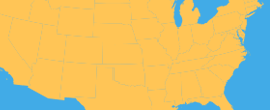Organic operations must maintain or enhance soil and water quality, while also conserving wetlands, woodlands and wildlife. Synthetic fertilizers, sewage sludge, irradiation and genetic engineering may not be used. Only products that have been certified as meeting the USDA’s requirements for organic production and handling may carry the USDA Organic Seal.
What is an Organic System Plan (OSP)?
A written plan, in accordance with the National Organic Program published in 7 CFR part 205, that describes all aspects of the organic farming practice that an insured and a certifying agency agree upon annually or at such other times as prescribed by the certifying agency.
OSP requirements include, but are not limited to providing methods/practices for the following:
- Crop Listing
- Fertility
- Pest Control
- Disease Control
- Weed Control
- Seed-Planting Stock
- Crop Rotation
IMPORTANT: For crop insurance purposes, it is imperative that organic producers follow their OSP as approved by the certifier (National Organic Certification Issuer). Failure to comply with organic standards may result in application of causes of loss.
Six Steps to Organic Certification
- Selection of a certifier.
- Application and submission of an OSP.
- Application and organic system plan review by the certifier (organic transitional stage).
- Organic Inspection.
- Review of the inspection report by the certifier.
- Organic Certification.
| Misconception | Fact | ||||||||||
|---|---|---|---|---|---|---|---|---|---|---|---|
| Organic Farming does not use pesticides. | Organic farming uses pesticides just as conventional farming does. The only difference is that (with a few exceptions) the pesticides used in organic agriculture have to be derived from “natural” sources. | ||||||||||
| Organic Farming can’t control weeds, because we can’t spray them. | Weeds can be controlled by various alternative methods such as: variety selection, high-crop seeding rates, nurse crops, sanitation, cover crops, solarization, cultivation, flaming, grazing, hand weeding, mowing, mulching, transplanting and weed cloth or black plastic | ||||||||||


